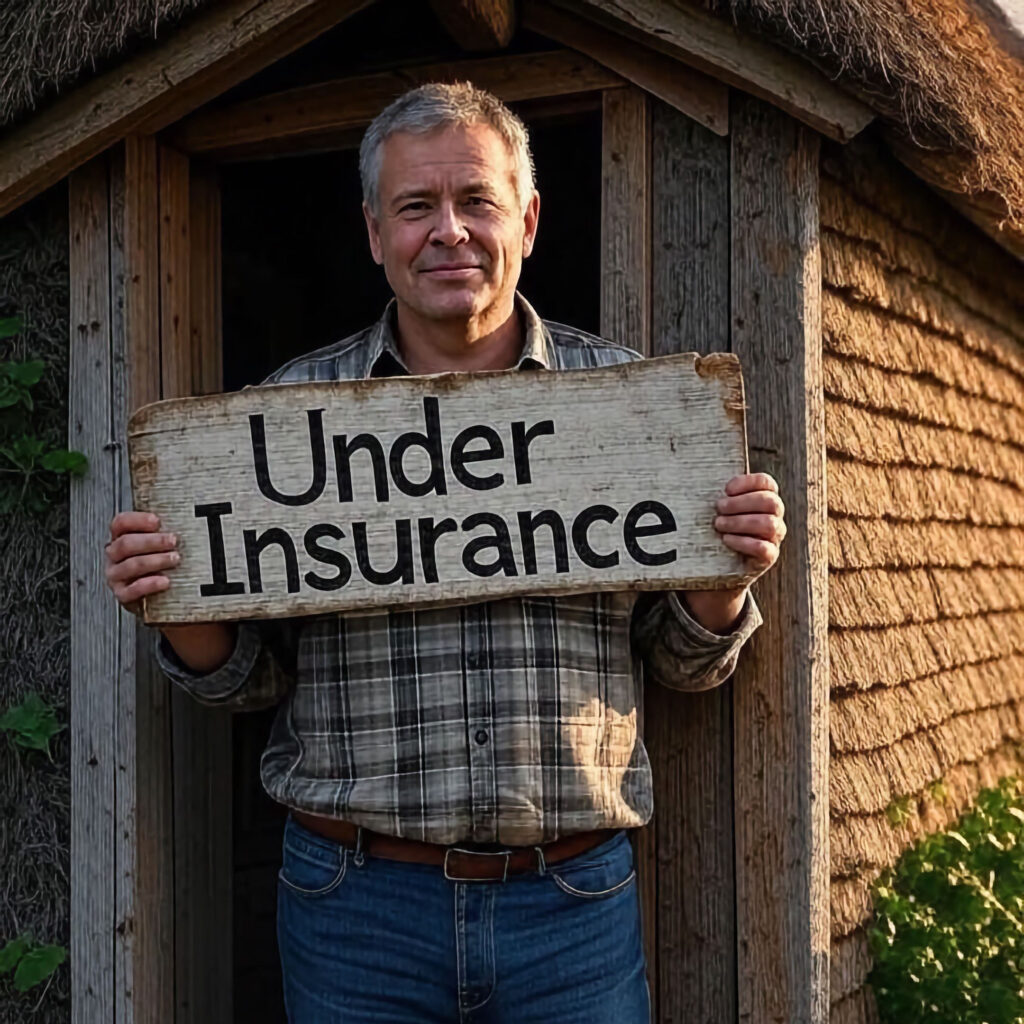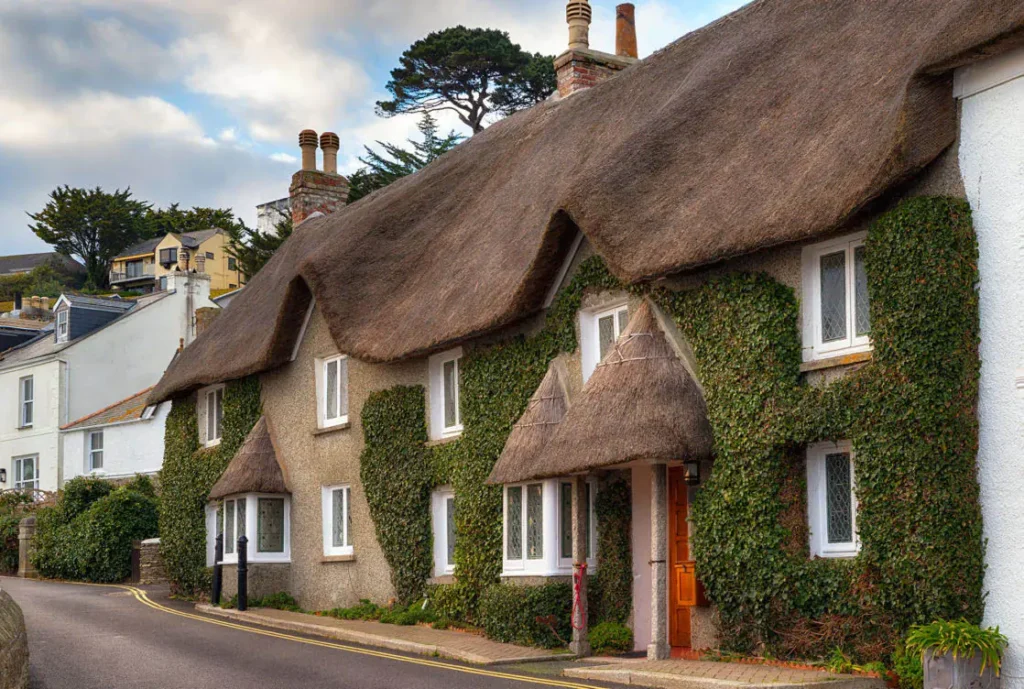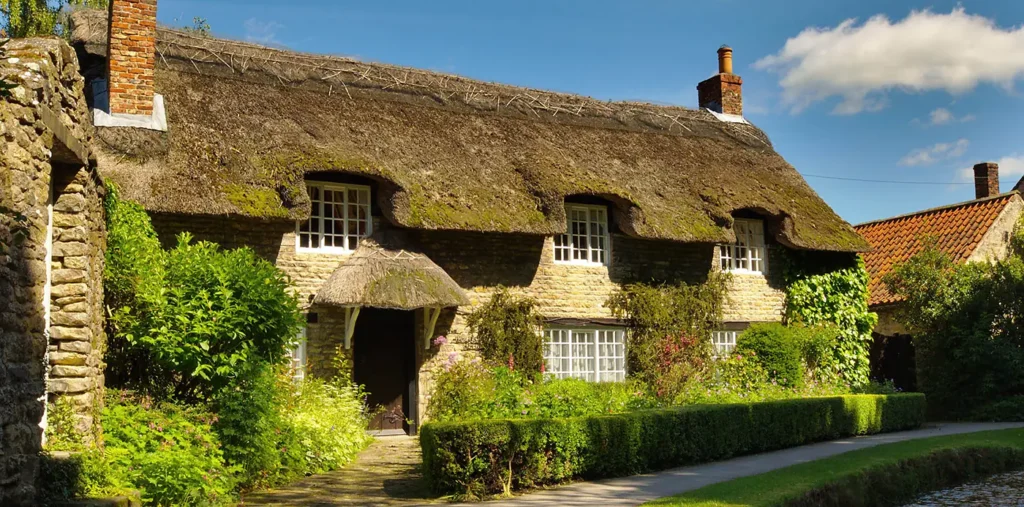What does underinsurance mean?

Underinsurance is when a policyholder does not have adequate insurance cover for their needs. For example, in the event of a claim this means that the claim amount exceeds the homeowners sums insured on their policy. This results in a shortfall for the policyholder meaning a financial loss.
There are a number of reasons you may be underinsured. In many cases, it happens when valuations are out of date, roughly estimated, or incorrectly calculated. It can also be caused by the limits in your insurance policy. It is common to underestimate the value of contents which are just not jewellery or antiques but the everyday items such as clothing, curtains, carpets, pots, pans, beds and bedding as an example. Imagine if you turned your property upside down and shook it, everything that fell out would be contents.
Your home is normally your highest value asset, and as such should be regularly assessed and valued every three years for an accurate rebuild cost for all structures. This includes the home and all outbuildings.
If you have made alterations or extended the property, and/or changed its use then you should let your insurer know as soon as these changes are made rather than waiting until your policy is due to be renewed.
Another common oversight for home owners is to insure for the market value when the sum insured should be the rebuild/reinstatement costs. Not only can the market value fluctuate but it is not an accurate reflection of the total cost to rebuild your home. Whilst materials and labour are obvious considerations, you should also consider factors such as professional fees (architects, legal, planning), demolition or make-safe costs. In some cases, there is also potential for rebuild planning permission to be refused or amended, especially if it is listed and this can take more time until you can move back in to your home.
You need to consider that any rebuild/repair work to a listed building will have to take into account the original construction of the building as well as other factors that also determine the reinstatement cost such as to what type of listing is attached to your property, the nature of materials it is built from, and the age of the building. Listed or heritage buildings, for example, typically have higher rebuilding costs than other properties as they must adhere to traditional forms of construction and specialist materials. This is where a professional valuation is an important consideration:
- How long will it take to rebuild your property after a total loss?
- Total rebuild period is 29 months, this is structured as follows:
- Pre-construction period, design, planning & demolition is 12 months.
- Construction period is 17 months.
Without an accurate rebuilding figure, it makes your insurance policy utterly pointless because you will not be financially compensated to the level you require to rebuild your home should you suffer a loss.


Thatched Owners Group
INDEPENDENT SURVEYORS
We are able to provide the services of qualified independent surveyors who will advise you on an accurate rebuild cost for your property and any permanent structures you may have, for example walls, garages and outbuildings.
NEW PURCHASE COVER
For new purchases, we can liaise with your solicitor or mortgage provider and ensure the exchange and completion are not delayed by insurance issues, providing them with written confirmation of cover and any policy details they may require.
PERSONAL SERVICE
We do not operate via a call centre and have experienced staff, offering a personal service. Your cover can be arranged with just one telephone call – we are available until 7.00pm Monday to Friday, and until midday on Saturday.
Premium Insurance
Our thatched property insurance policies are underwritten by triple-A rated companies who understand the particular needs of thatched properties – so you get the right level of treatment, cover and price, covering exactly the right things.
